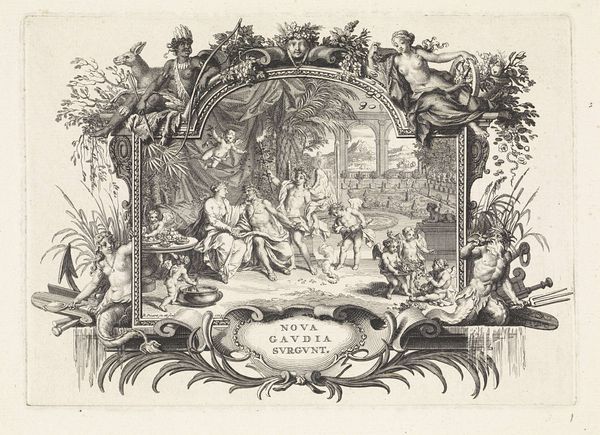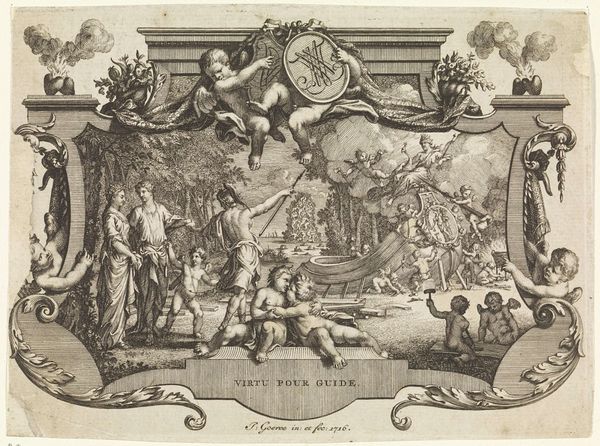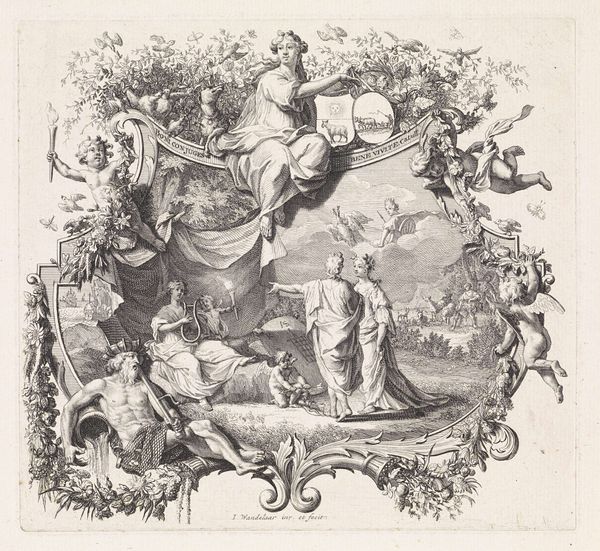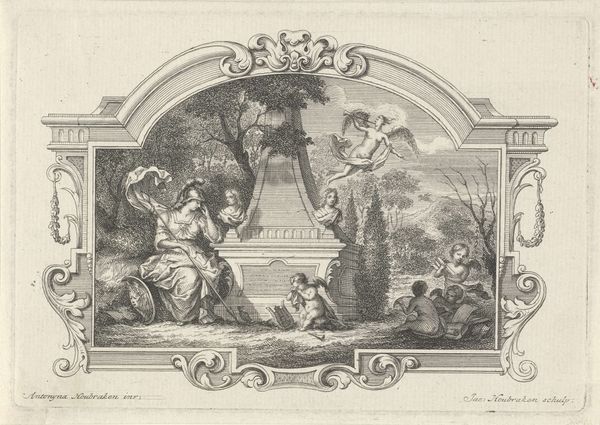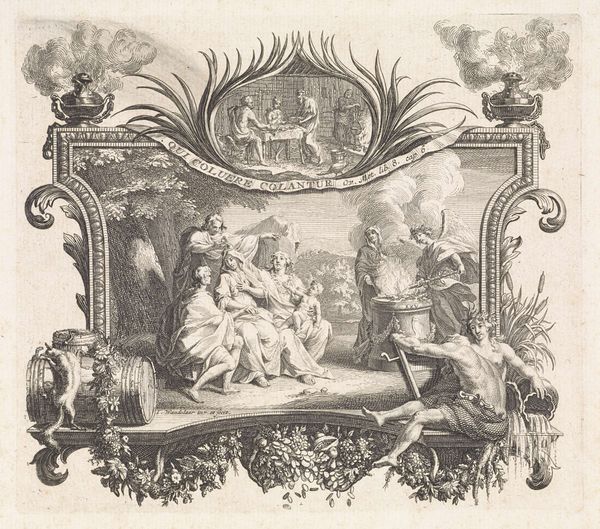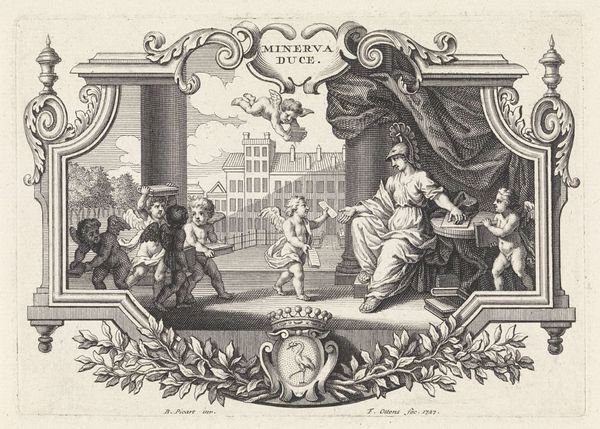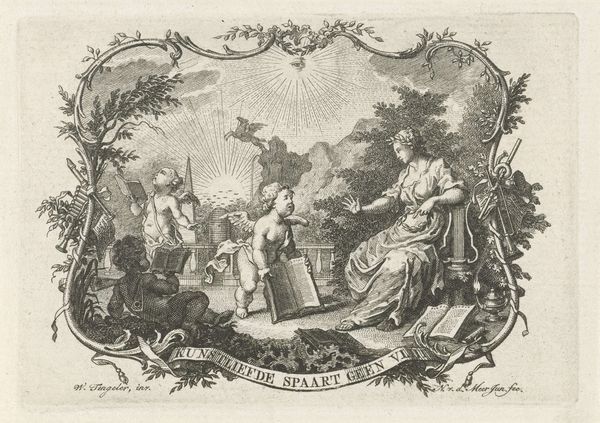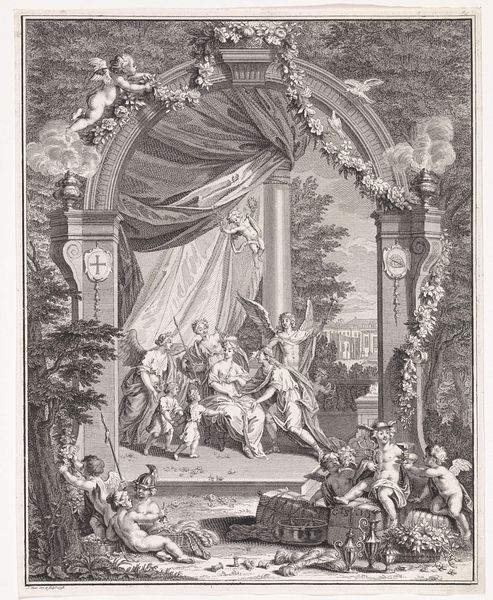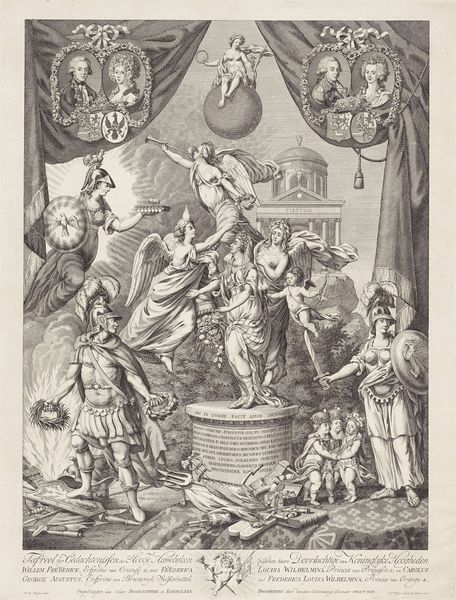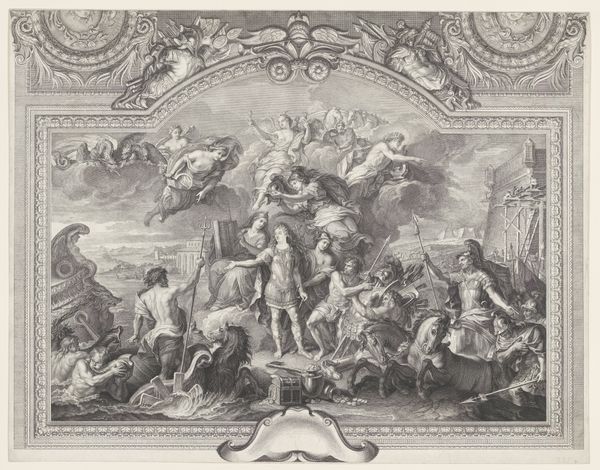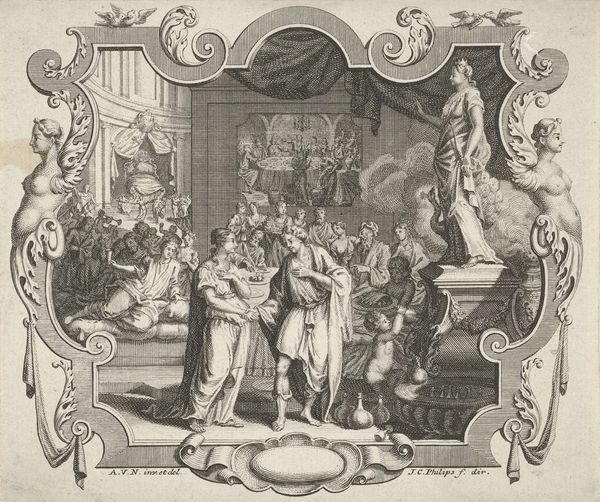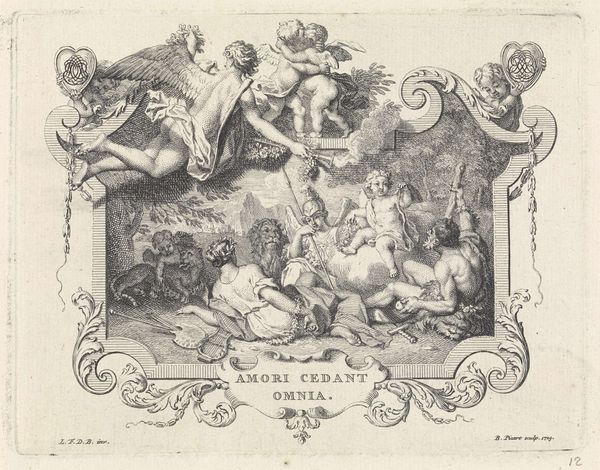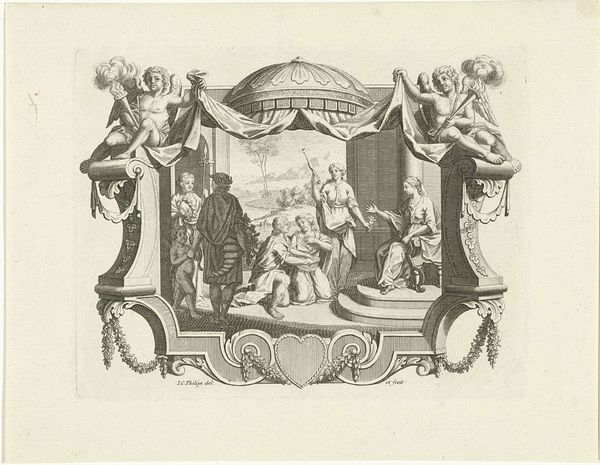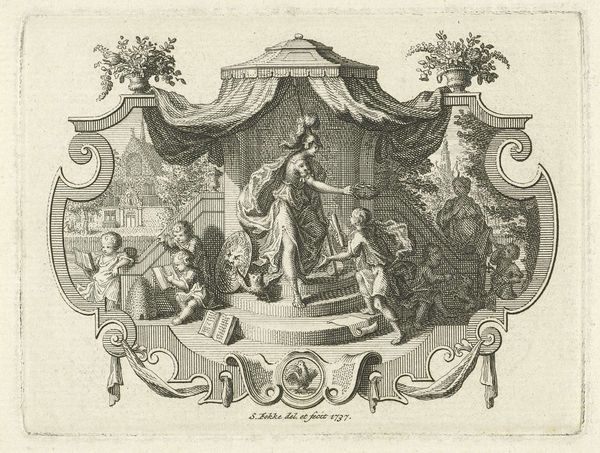
Allegorische voorstelling ter gelegenheid van het huwelijk van Arent Bosch en Eletta Thesingh 1718
0:00
0:00
bernardpicart
Rijksmuseum
print, engraving
#
portrait
#
quirky sketch
#
allegory
#
baroque
#
pen drawing
# print
#
pen illustration
#
pen sketch
#
old engraving style
#
figuration
#
personal sketchbook
#
sketchwork
#
pen-ink sketch
#
line
#
pen work
#
sketchbook drawing
#
history-painting
#
engraving
Dimensions: height 113 mm, width 144 mm
Copyright: Rijks Museum: Open Domain
Editor: Here we have Bernard Picart’s engraving from 1718, titled "Allegorical Representation on the Occasion of the Marriage of Arent Bosch and Eletta Thesingh." It’s a rather elaborate scene filled with classical figures and symbols surrounding what looks like a marriage bed. What immediately strikes me is its purpose – a commemorative print for a specific couple. How do you interpret this work within its historical context? Curator: It's crucial to remember that the consumption of art in the 18th century was often tied to specific social practices. Prints like this weren’t just decorative; they served a public function. Commemorative engravings validated and celebrated social events, particularly marriages. The allegory itself, blending classical and contemporary elements, elevates the couple. Consider the intended audience - what social messages about the couple and their families are being emphasized through these symbols? Editor: I see. So it’s less about personal expression and more about constructing a public image, almost like early forms of social media? Curator: Precisely. The allegorical figures, the carefully arranged scene, the inclusion of initials in the cartouche—all these details reinforced a desired social standing. The medium of engraving, allowing for multiples, is also significant. It democratized the image, distributing this carefully crafted representation throughout their social network, extending the celebration. Does knowing this change how you perceive the image? Editor: It definitely does! I was initially focused on the artistic skill, but now I realize it’s deeply embedded in the social customs and expectations of the time. The choice of imagery speaks volumes about their aspirations. Thank you for helping me think more deeply. Curator: And your fresh eyes help us remember the impact that art consumption in social practices had at that moment. We can’t help bringing modern viewpoints, but need to remember to see their contemporary perspectives, too!
Comments
No comments
Be the first to comment and join the conversation on the ultimate creative platform.
